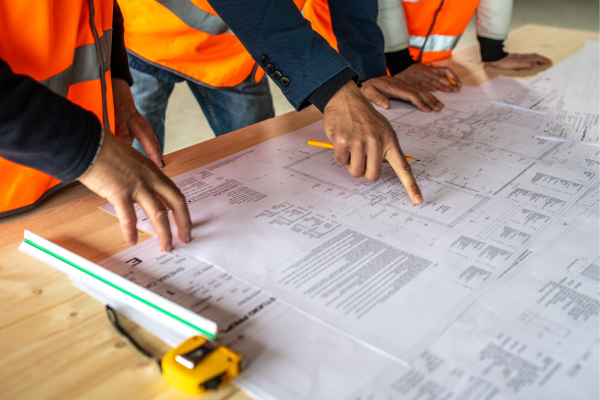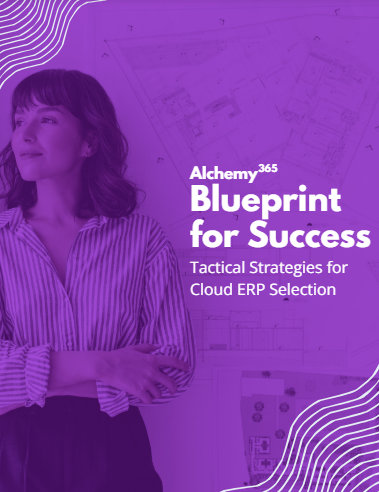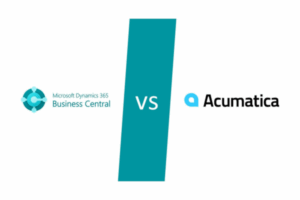1. Messy Project Budgets
Let’s start with project budgets. Imagine you’re working on three big jobs at once. One project is running under budget, another is dangerously close to overspending, and the third…well, no one really knows how it’s doing because the numbers haven’t been updated in two weeks.
This kind of disorganization leads to one of two things: either you spend hours trying to untangle the mess, or you’re blindsided when the costs spiral out of control.
With an ERP, you can track all your project budgets in one place—in real time. Alchemy 365 lets you see exactly how much has been spent, what’s left, and whether you’re on track to stay profitable. No more guessing. No more surprises.
2. Late Payments (In and Out)
Construction is famous for its payment delays. Subcontractors don’t get paid on time, clients drag their feet on invoices, and your cash flow takes a hit.
Picture this: You’re waiting on a $50,000 payment from a client, but meanwhile, your roofing subcontractor needs their $10,000 check yesterday. What do you do? Scramble to move money around, borrow from another project, or delay payments—none of which feel good.
An ERP system streamlines this process by automating invoicing and payment tracking. You’ll know who owes you what, when it’s due, and whether you’ve sent out reminders. Tools like Alchemy 365 can also flag upcoming payments you need to make, so you’re never caught off guard.
3. Overwhelming Job Costing
Ever get to the end of a project and wonder, Where did all the money go? Maybe the labor costs ran higher than expected, or material prices jumped mid-project, and you didn’t catch it in time. Job costing is critical for construction companies, but doing it manually—or not doing it at all—can sink your profitability.
With an ERP, job costing gets baked into your daily workflow. You can assign every dollar spent to a specific project and track how those costs stack up against your estimates. Alchemy 365 even helps you spot problem areas early, so you can make adjustments before it’s too late.
4. Unpredictable Cash Flow
Cash flow is the lifeblood of any business, but in construction, it’s more like a roller coaster. Some months are flush with payments; others feel like a drought. It’s hard to make smart decisions—like hiring or buying new equipment—when you’re not sure what’s around the corner.
An ERP gives you tools to forecast cash flow based on your current and upcoming projects. Alchemy 365 can take your historical data and upcoming invoices to give you a clearer picture of what’s ahead. That way, you can plan confidently instead of crossing your fingers and hoping for the best.
5. Unorganized Tax Prep
Let’s be real—nobody likes tax season. But for construction companies, it can be a nightmare if your financial records aren’t up to date. Digging through spreadsheets and receipts to find every deductible expense is not just time-consuming—it’s risky. Miss something, and you could end up overpaying or under-reporting.
With an ERP, all your financial data is in one place, organized and ready for tax time. Alchemy 365 makes it easy to pull reports, track expenses, and stay compliant without all the last-minute scrambling.
The Payoff: Less Stress, More Control
At the end of the day, an ERP isn’t just about saving money (though it does that, too). It’s about giving you peace of mind. Imagine knowing exactly where your finances stand, having the tools to make informed decisions, and spending less time putting out fires. That’s what systems like Alchemy 365 are built for.
Running a construction company will always come with challenges, but managing your finances doesn’t have to be one of them. With the right tools, you can stop sweating the small stuff and focus on growing your business. Isn’t that what it’s all about?





